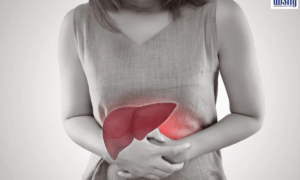Dengue is sometimes also known as break-bone fever. Among all disorders caused by mosquitoes, dengue is the deadliest. With the deadly condition that dengue is, warning signs of dengue fever should be kept in mind.
Many people do not know that dengue is a viral disease and malaria is not. Across the tropical and subtropical nations in the world, dengue infects 100-400 million people each year. However, dengue is not a contagious infection. Instead, one gets dengue when bitten by infected Aedes aegypti mosquitoes.
When we consider the early symptoms of dengue fever, they include recurring fevers, ongoing weakness, and body rashes. In case you come to see that the symptoms have been going on for some time, self-administration of medications is to be avoided. Instead, consult your physician.
In this blog, we discuss the most common warning signs of dengue fever one should be on the lookout for before consulting a physician. Irrespective of whether these symptoms are severe or mild when they appear, it implies that immediate medical attention is sought.
Ten of the most important warning signs of dengue fever that you should keep in mind:
1. Persistent high fever
When one suffers from persistent high fever, it is one of the most prominent signs of dengue. In this particular case, the fever has to be two degrees above the normal body temperature.
Dengue fever is sometimes known as the seven-day fever as well. Associated symptoms include rashes on the skin and blood in urine and stools.
When the patient suffers from fever in a suspected case of dengue, he is likely to be prescribed antipyretics. Now, despite consuming antipyretics, if the fever lasts for more than a week, you should be getting in touch with your physician. He’d conduct a thorough evaluation of the suspected dengue virus.
2. Incessant Headaches
One of the most important symptoms of dengue fever is intense headaches. When such a dengue-induced headache occurs, one experiences a throbbing between the retro-orbital lobes and frontal lobes. The headache iteratively spreads bilaterally and repetitively occurs.
With the headaches being iterative, they are difficult to heal by using analgesics. In case you come to feel that you are suffering from an incessant headache, self-administration is to be avoided. Instead, consult your physician.
3. Severe body aches
Severe body ache is another important symptom associated with dengue fever, and its name, bone-break fever arises from the symptom. Dengue is a viral fever and as the infection reaches your muscles, it leads to spontaneous inflammation and causes severe body aches. The use of analgesics will relax the body aches, but only temporarily.
Severe body aches are among the most important signs of dengue. The pain proliferates all through the body, and muscles and joints are affected, which include the back, mouth, and limbs.
A patient should try and make sure that these body aches are not ignored. Instead, you should contact your physician to have the dengue symptoms diagnosed.
4. Unprecedented Rashes
When one suffers from dengue, unexplained rashes with purple and red appearance tend to appear on the skin. This is typically after the onset of the viral infection. The skin tends to bruise and the underlying cause of the same is the internal bleeding of the epidermis.
There are cases when these rashes bear similarity to measles. However, the rashes are recurrent, unlike the case of chicken pox.
It should be noted that when one suffers from dengue infection, the breakout of rashes is sudden. This makes the symptom different from an allergic reaction.
Since antihistamine medications won’t help reduce these rashes, clinical consultation is highly recommended in such cases and it is a must for fighting dengue infection.
5. Ocular pain
One of the most important dengue fever symptoms is a pain in the back of the eyes. This is a pain that accompanies the incessant headaches that occur when one is afflicted by dengue infection. There is sometimes a feeling of constant pain moving around.
This leads to ocular inflammation and there is a characteristic redness of the eyes (uveitis) arising from subconjunctival hemorrhage.
The symptom of reddish eyes and excruciating eye pain is characteristic of dengue and does not occur in other illnesses. In case you have been experiencing any of these symptoms, you should be visiting your doctor for an extensive consultation. Self-administering OTC drugs might delay your visit to your physician; so, choose the latter over the former.
6. Prolonged Fatigue
Prolonged fatigue is one of the important signs of dengue which is sometimes known as break-bone fever as well. Upon infiltrating your muscles, dengue fever leads to ongoing body aches and rapid inflammation. The pain is accompanied by concurrent spasms and may last for weeks at a stretch.
In case you have been recently experiencing physical discomfort alongside similar signs of dengue fever, it is recommendable to not self-administer analgesics. Instead, get in touch with your physician and get diagnosed for dengue. If you neglect your symptoms, you may require hospitalization at a later stage for a complete cure.
7. Severe abdominal discomfort
Severe abdominal discomfort is one of the important symptoms of dengue fever. The symptom finds its manifestation in the form of cholecystitis, hepatitis, colitis, and pancreatitis. With these conditions, a patient experiences profuse pain throughout the abdominal region accompanied by bloating.
There are times when dengue infection affects vital organs such as the liver and gallbladder and leads to subserosal fluid accumulation. If you are experiencing ongoing belly aches, get in touch with your physician before administering any broad-spectrum antibiotics or anti-spasmodic drugs.
8. Sollen Lymph Nodes
Dengue infection could affect lymph nodes all across the body. It leads to inflammation and a sign that makes us sure about the symptom is the swollen back region.
The underlying damage includes thymus atrophy, reduced lymphatic cell count, bone marrow hypoplasia, and lymph node infarction.
In case you are experiencing swollen lymph nodes accompanied by dengue fever symptoms, get in touch with your physician who will conduct a thorough diagnosis for early preventive treatment of existing symptoms.
9. Recurrent Nausea and Vomiting
Among the signs of dengue are vomiting and nausea and they also affect gut health and intestinal walls. At times, blood vomiting follows.
When afflicted by dengue, you might experience aching abdominal imparting tenderness alongside frequent diarrhea. These symptoms are important to note as they are intermediate warning signs of dengue. In a dearth of proper clinical support, your condition could deteriorate.
When experiencing these symptoms, antiemetic medications are not recommendable for arresting nausea. Instead, you should consult a registered clinical practitioner for a complete diagnosis.
10. Internal Bleeding
Internal bleeding is an outcome of harboring a pathogenic infection in the vital organs. Advanced warning signs of dengue fever lead to thrombocytopenia, which is the destruction of platelet cell count. Severe bleeding takes place from the intestinal region under such circumstances and results in the passing of blood with stool.
You might likely experience bleeding from your nose and mouth as ectodermal bruises fill the skin, which is also a sign of underlying hemorrhage.
The unabated dengue virus coagulates blood platelets which result in weakened immunity, lowered RBC count, and bleeding gums. Do not self-administer medications without a physician’s counsel.
Conclusion
Severe weakness, fever, and body aches are among the most prominent signs of dengue, and in such a case, a doctor will recommend pathogenic examinations.
In the dearth of prompt treatment, warning signs of dengue fever could be life-threatening. There is no direct medication for the condition and the treatment depends on the reduction of extreme symptoms for stabilizing the patient.
Never neglect persistent symptoms or prolonged illness because, with early treatment, the odds of fatality are minimized.
























